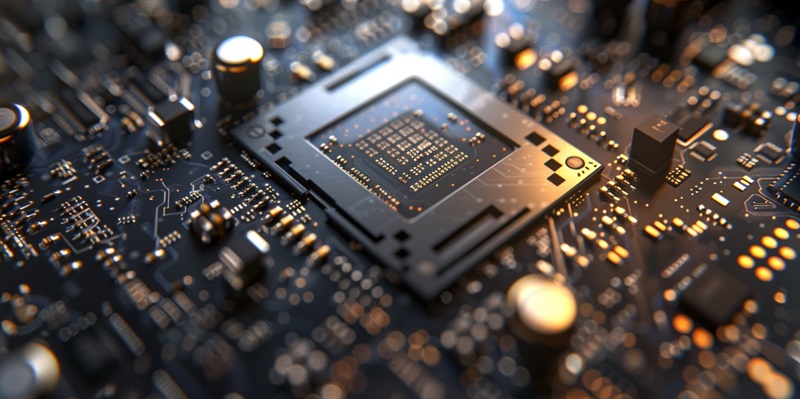Intel’s launch of the Ponte Vecchio GPU represented a major advance in the company’s data center GPU offerings. Designed to tackle demanding high-performance computing (HPC) tasks, Ponte Vecchio showcased Intel’s chiplet technology prowess, employing 47 chiplets linked by its innovative EMIB and Foveros technologies. The GPU was positioned to challenge Nvidia’s dominance in the HPC space, particularly looking to take on the A100 accelerators.
Sunsetting Ponte Vecchio
Transition to New Projects
Despite the technological breakthroughs Ponte Vecchio presented, Intel has commenced the process of sunsetting the product. The swift lifecycle of the chip can be largely attributed to the fiercely competitive nature of the HPC landscape and the need to stay ahead of industry giants like Nvidia and AMD. Intel’s decision reflects not just a tactical withdrawal from one battle, but a strategic redeployment of resources toward impending conflicts, where winning could offer greater rewards. Ponte Vecchio’s retirement is part of a grander schemata to maintain Intel’s competitive edge in a rapidly evolving market.
A Competitive Market Response
The sudden decision to retire Ponte Vecchio mirrors the market’s breakneck speed and unrelenting demand for innovation. While the GPU boasted remarkable capabilities, its late market entry inevitably curtailed its practical utility and lifespan. This has compelled Intel to shift its focus to the upcoming Gaudi 2 and 3 accelerators. By prioritizing these new projects, which show immense promise in AI applications, Intel is not just playing catch-up; it’s attempting to leapfrog the competition altogether.
Intel’s Future Roadmap
Betting on Gaudi Accelerators
Intel’s strategic roadmap now banks on the success of its Gaudi 2 and 3 accelerators. These products represent the company’s commitment to capturing a robust position in the AI market. Such a direction signifies Intel’s belief in the fusion of AI with traditional computing paradigms, a confluence that could redefine computational capabilities across industries. Transitioning to Gaudi accelerators is a clear bet on the surging importance of AI-specific hardware, where Intel anticipates significant growth.
Focusing on Falcon Shores
Intel’s introduction of Falcon Shores signifies yet another major stride in its data center GPU and CPU innovation efforts. The Falcon Shores line is set to elevate the company’s competitive posture through an ambitious blend of XPU architecture – integrating CPU and GPU functionalities. The focus on Falcon Shores illustrates Intel’s foresight in anticipating industry trends and positioning itself at the forefront of the next compute revolution. By driving forward with investments in cutting-edge technology such as Falcon Shores, Intel aims to carve out new markets and be the vanguard of the compute industry’s future.

